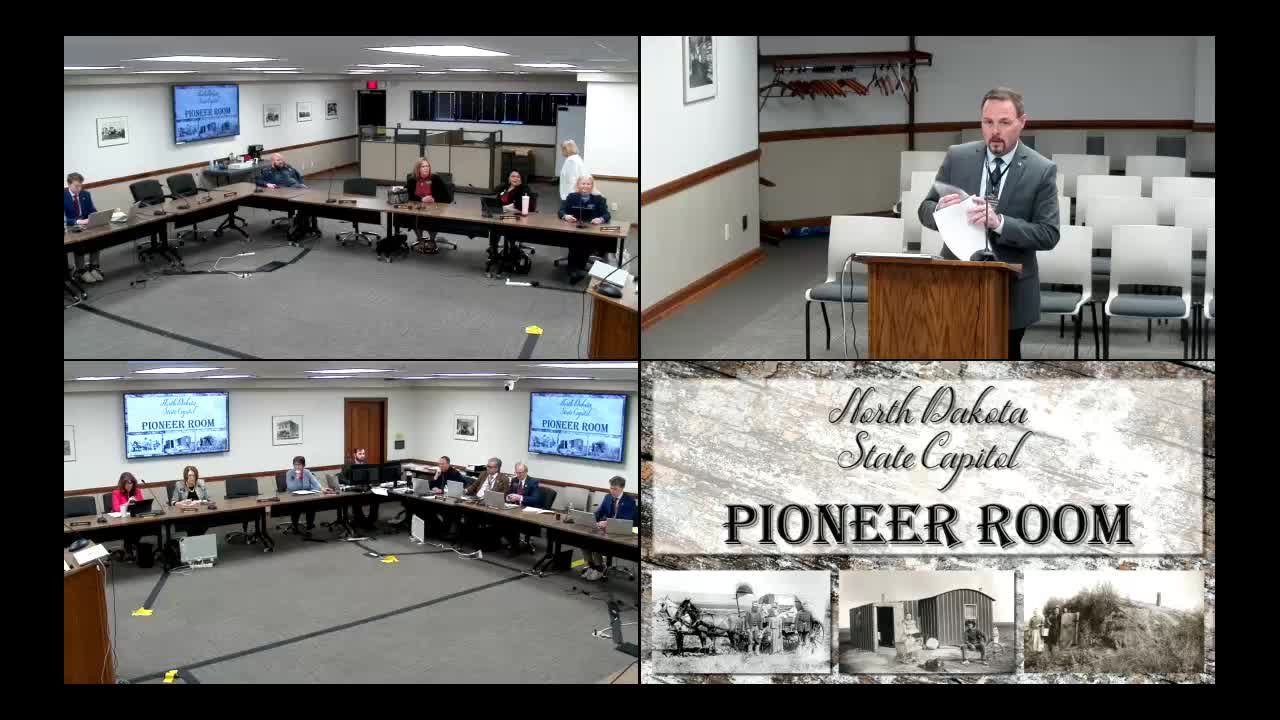GVA committee debates campaign-reporting software, beginning/ending fund-balance rules
Get AI-powered insights, summaries, and transcripts
Subscribe
Summary
Representative Ben Koppelman, District 16 of West Fargo, raised questions Tuesday in the Government and Veterans Affairs committee about how a proposed overhaul of campaign reporting would treat certain items and whether the new system should require candidates to report beginning and ending fund balances.
Representative Ben Koppelman, District 16 of West Fargo, raised questions Tuesday in the Government and Veterans Affairs committee about how a proposed overhaul of campaign reporting would treat certain items and whether the new system should require candidates to report beginning and ending fund balances.
Koppelman said he found three items he wanted the committee to consider: the definition of “contribution” on page 5 and whether use of property (for example, “putting a sign on the side of a building… or on a semi truck trailer”) could be treated as a loan and therefore a contribution; language on page 6 that describes a “deposit of money or anything of value” as an expenditure; and a provision on page 13 that would require beginning and ending fund balances to be entered into the system.
The matters matter because the bill pairs statutory changes with a new vendor-supplied reporting system. Koppelman said he supports improvements and optional tools but does not want the beginning and ending balances to be mandatory. “I just don’t want it to be a required component of reporting for the new system,” he said.
Michael Lau, North Dakota secretary of state, told the committee that much of the contested language is existing law. “That’s existing law,” he said, adding that Representative Steiner and a staff member named Dustin worked on the draft and that the office did not change those provisions. On the beginning/ending balance item, Lau said the balance is important for the vendor system because if a filer amends a year-end report from several years ago, the system automatically repopulates other reports to keep running balances accurate. He said the bill as drafted includes language shielding beginning and ending balances from public disclosure. “That is not allowed to be disclosed under open records laws,” he said, referring to the draft’s confidentiality language.
Committee members debated technical tradeoffs. Some members asked whether the system could let users “opt in” to use the vendor’s checkbook-style tool while others do not; Lau said maintaining two different systems or rule sets creates complications because amended historical reports would require different handling. Koppelman suggested a workflow where filers choose their entity type and the interface shows only the fields that apply, or an opt-in checkbox for the full tool, but reiterated opposition to requiring the beginning/ending balance for all filers.
Other technical issues were discussed briefly: Koppelman asked whether a yard sign or building surface could be treated as a loan (and thus a contribution); Lau replied the language reflects current law but the committee could change it. Koppelman also questioned whether the phrase “deposit of money or anything of value” properly belongs in the expenditure definition; Lau confirmed that language was not new and the committee could revisit it.
The committee did not take a formal vote. Members agreed to return the bill to the subcommittee for additional drafting and to involve Representative Koppelman, Representative Steiner and Dustin, and staff from the Secretary of State’s office in follow-up meetings. The committee said it expects to reconvene later in the week to try to move the bill forward.
The discussion combined legal drafting questions (definitions in code), software design and vendor implementation concerns, and transparency questions about which data the public would be able to see. Committee members repeatedly emphasized they supported updated reporting tools but differed on whether certain data fields should be mandatory or optional.
